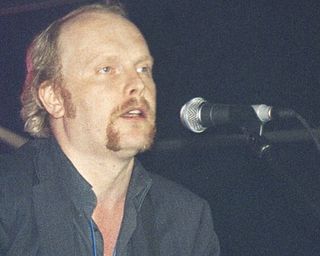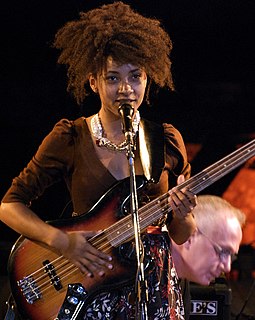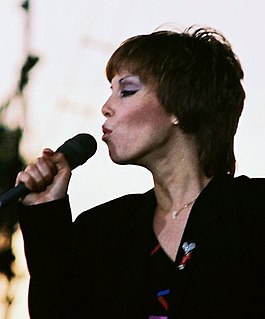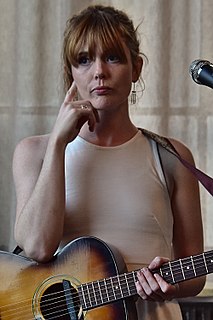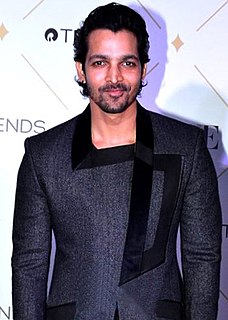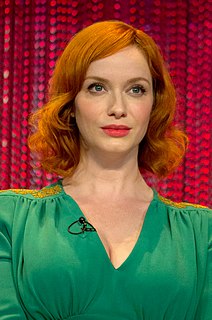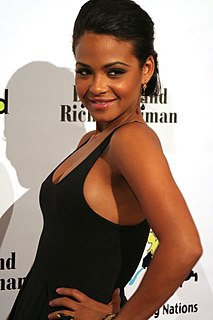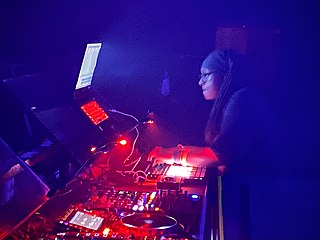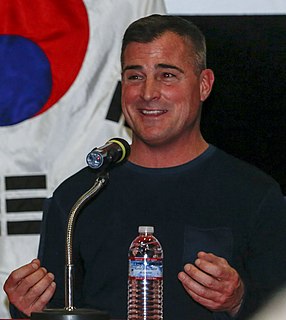A Quote by Luke Haines
I saw the 'Popstars' programme and to me it looked more like 'Opportunity Knocks' than the kind of cutting-edge postmoderism that The Guardian would like to have us believe it was. I think what it's more about is the public and the music industry's bloodlust. It's just like someone itching to say 'Oh, confound it all, let's bring back hanging, that was good entertainment'.
Related Quotes
I believe that the greatest music is storytelling anyway, in a heightened medium. So I write a lot of music, and I play a lot with my guitar, I still sing a lot, but now I'm more personal about it than public, in a way. I think there will be a time where I'd like to bring the singing back into some of my performances. It all depends if the material's right, if the story's right, if it's my kind of taste in music, as well. It means so much to me. We all know how affective music can be, I just want to make sure when I do it, I'm doing it because I actually feel it and I care about it.
People are more used to seeing men who are masters at an instrument than women. When people say, 'Oh, she plays like a dude,' it's usually dudes who are the ones saying it. They're saying, 'Oh, she's as good as us.' Of course, that's a stupid statement. It's totally stereotypical to say, 'We have an advantage on this, and if anyone else can do it well, it's only because they're like us.' I think more men are starting to learn that this attitude is totally hollow and based in imagination. As more women are involved in music, this kind of thing gets said less and less.
When I started it still wasn't okay to be this age and still make this kind of music. And believe me, I consider our stuff to be much poppier than - we're not on like cutting edge, that kind of thing anymore. And even though we're not doing Britney Spears music or Nsync, it's still what I consider to be pop music. So that does give you a little bit more longevity, I guess. But if somebody told me I'd be getting up there and singing "Heartbreaker" at fifty I'd laugh. So I don't know, I have no idea.
(Human) beings, in Pagan times would kind of like, listen to the stories and, they could kind of, identify - . They were, like, bigger than them and more successful than them or more beautiful, but they had these human fallibilities. Which is like celebrities now. It's like, 'oh, she's in rehab. Oh, she's unfaithful. Oh, they're divorced. Oh, she's anorexic. Oh, he's had a nose job.' You know, whatever it might be.
Humor is everything. Everything. Usually the negatives turned out to be the most positive for me. In the music industry, any other artist would have looked at the situation I was in and thought, "Oh man, this is not for me." I looked at it more like Darwin exploring the Galápagos Islands. You know - survival of the fittest.
There's a kind of edge to what you're doing, the kind of leading edge of what you're doing. Inside that edge [are elements you] are familiar with, and are probably becoming slightly bored with, as well, over a period of time. "I've pulled that one out before. Oh, no, I can't I'm just fed up with that. Let's do something else."And you always think "Oh my God I've never done anything at all like that before." But, of course, in retrospect, and to an outsider, they'll say, "Oh, yeah that's typical Eno.
Some guys that know me from when I was a kid say "My son, oh he's just like your father." It's just a natural part of our lives. But, within the music industry and within the industry of the critiques of music, where it becomes "Ziggy's music is not as good as Bob's music," I don't understand. But I don't really pay much attention to that because I'm just expressing myself.
Music has always been a part of my life and because it always seemed so natural to me, it took someone else saying, "I think you should consider doing this for a job," for me to actually look at it that way. To me, it wasn't super goal-oriented in that way. It was like, "Oh, I like to play shows and I like to record," but I didn't think of it any more than that.
So many interviews, even ones that I consider really intelligent and good writers, will do the, like, 'Oh, you're not taking your clothes off like Miley Cyrus and all these girls' thing, which to me is just the weirdest thing to say to someone. ... Now when people are like, 'Tell me what you think of Miley!' I'll say, 'What do you think of Miley?' and they'll flounder and say, 'Well, I think she's really talented...' and I'm like, there you go.
All of a sudden I was Joan [Mad Man] and they're going, "Oh, so she plays a badass in this." And I'm like, "Oh my god, I get to play badasses." Firefly was a little bit of that, but she started out as a mouse and then she turned into a dragon. But I never really had that opportunity. So all of a sudden people were like, "Oh, do you feel like you're being typecast?" I would say, "No, this is just opening the doors." No one thought I could do it and someone finally trusted me to do it.
The writing process is more... it becomes a case of more like a diary for me. I mean, I write stuff down all day whenever I'm experiencing something that I think would be important for me to look at later on. You know, whether it be for writing lyrics or just for a memory, like, 'Oh, my gosh, I can't believe I was feeling that way at that time'.
I just want to say that um, I'm just really, really shocked at like how nice our world is because it's just so nice. Like oh my God! Like, the other day, like I was sitting there and I saw these magazines and they said I was pregnant, and like, it's so true. Like America, believe everything you read. Because, like, you're smart and I'm stupid. Like for real. Come on y'all.
Well, when you think music-wise, and if you hang with me or you see me or whatever, the average person will be like 'oh yeah, she probably raps'. This is that stereotype and then I do what I do, so they're more like 'oh, I wasn't expecting this whatsoever'. This especially links with the idea of being a woman in this kind of work and within the footwork genre.
